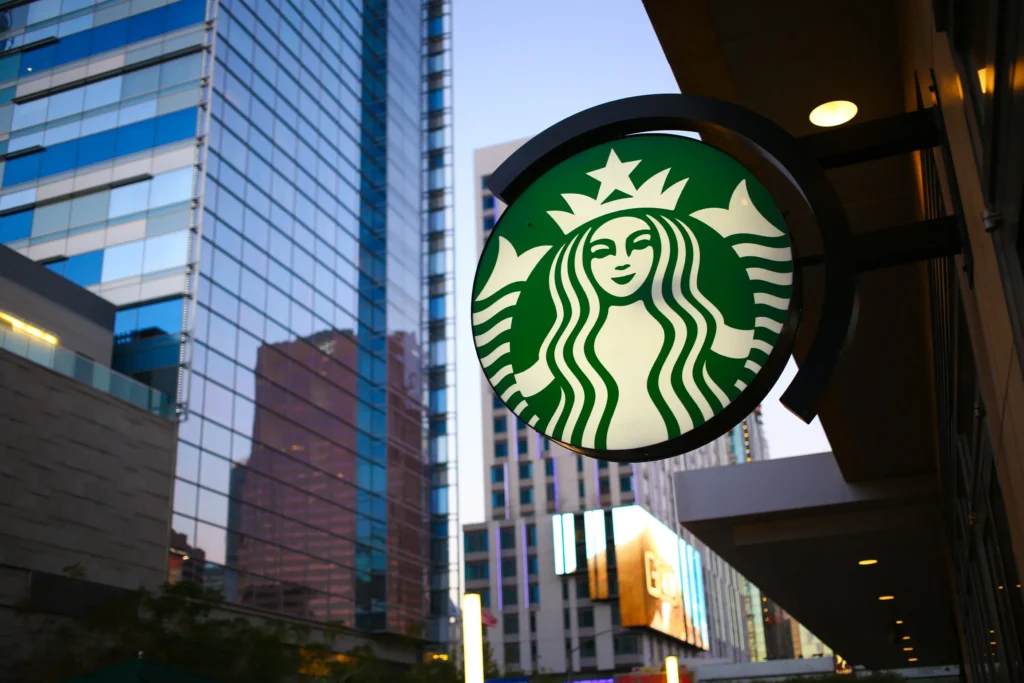Decentralizing CMOs & the Importance of Strong Brand Guidelines
In today’s rapidly evolving digital landscape, businesses are increasingly decentralizing their operations, including their marketing strategies. Starbucks recently followed suit and eliminated their CMO role. This shift often involves delegating significant marketing responsibilities to regional or departmental levels, away from centralized control typically overseen by a Chief Marketing Officer (CMO). This restructuring underscores a broader trend toward agility and responsiveness in adapting to market demands and consumer behaviors.
While decentralization can foster agility and innovation, it also introduces challenges in maintaining brand consistency and integrity across diverse initiatives and geographical regions. The need for robust brand guidelines becomes paramount in ensuring that the decentralized marketing efforts align closely with the overarching brand strategy. Beam leverages an interactive, easy-to-access brand center to help teams navigate decentralized environments, avoid costly brand missteps, and drive productivity.

Ensuring Consistency Amidst Diverse Initiatives
Brand Identity Preservation: A strong brand is not merely about logos and colors but about consistent messaging and customer experience. When marketing functions are decentralized, various teams may interpret and execute the brand differently, potentially diluting its identity. As highlighted in a LinkedIn update by industry experts, clear and comprehensive brand guidelines provide a unified framework for all decentralized teams, ensuring that their activities uphold the brand’s core values and identity.
Customer Experience: Brands today are experienced through a multitude of channels, both online and offline. Inconsistencies in branding across these touchpoints can confuse customers and erode brand trust. By adhering to well-defined brand guidelines, companies can maintain a cohesive brand experience that resonates with customers regardless of where or how they interact with the brand.
Empowering Creativity Within Constraints
Flexibility Within Boundaries: Decentralization empowers local teams to respond swiftly to regional nuances and customer preferences. However, this freedom must operate within the boundaries set by brand guidelines. These guidelines strike a delicate balance, providing a framework that encourages innovation while safeguarding the brand’s integrity and consistency.
Efficiency and Resource Optimization: Clear brand guidelines streamline decision-making processes for decentralized teams, reducing the need for constant approvals from central marketing authorities. This efficiency optimizes resources and accelerates time-to-market for campaigns and initiatives, a crucial advantage in today’s fast-paced business environment.
Adaptability in a Global Marketplace
Cultural Sensitivity and Localization: Operating in diverse global markets requires sensitivity to cultural nuances and local preferences. Decentralized marketing teams are well-positioned to understand and respond to these differences effectively. Strong brand guidelines facilitate localization efforts, ensuring that campaigns resonate authentically with local audiences while reinforcing a cohesive global brand image.
Measuring Impact and Effectiveness: Consistency in brand execution simplifies performance evaluation across regions or departments. By adhering to uniform metrics outlined in brand guidelines, companies can accurately assess the effectiveness of decentralized marketing efforts and identify best practices for future optimization and scaling.

Companies like Starbucks exemplify successful decentralization strategies supported by robust brand guidelines. Despite operating globally, this company maintains strong, consistent brand identities through detailed guidelines that empower local teams while preserving global brand integrity.
As businesses continue to navigate the complexities of global markets and embrace decentralization, investing in dynamic brand guidelines remains a strategic imperative. These guidelines serve as the cornerstone for preserving brand identity, enhancing customer experience, and empowering creativity within a structured framework. By equipping decentralized teams with clear direction and standards, companies can leverage the benefits of agility and responsiveness while safeguarding the long-term value and integrity of their brands. In the era of decentralized CMOs, the role of strong brand guidelines is not just about maintaining consistency—it’s about ensuring sustained growth, market leadership, and enduring customer trust.
Dig Deeper
Unlock the power of brand guidelines for a strong and consistent brand identity.
Contact Us
Let's Connect
Have questions or want to learn more about how Beam can help your business? Get in touch with us today. We're here to help you navigate the digital landscape with ease.